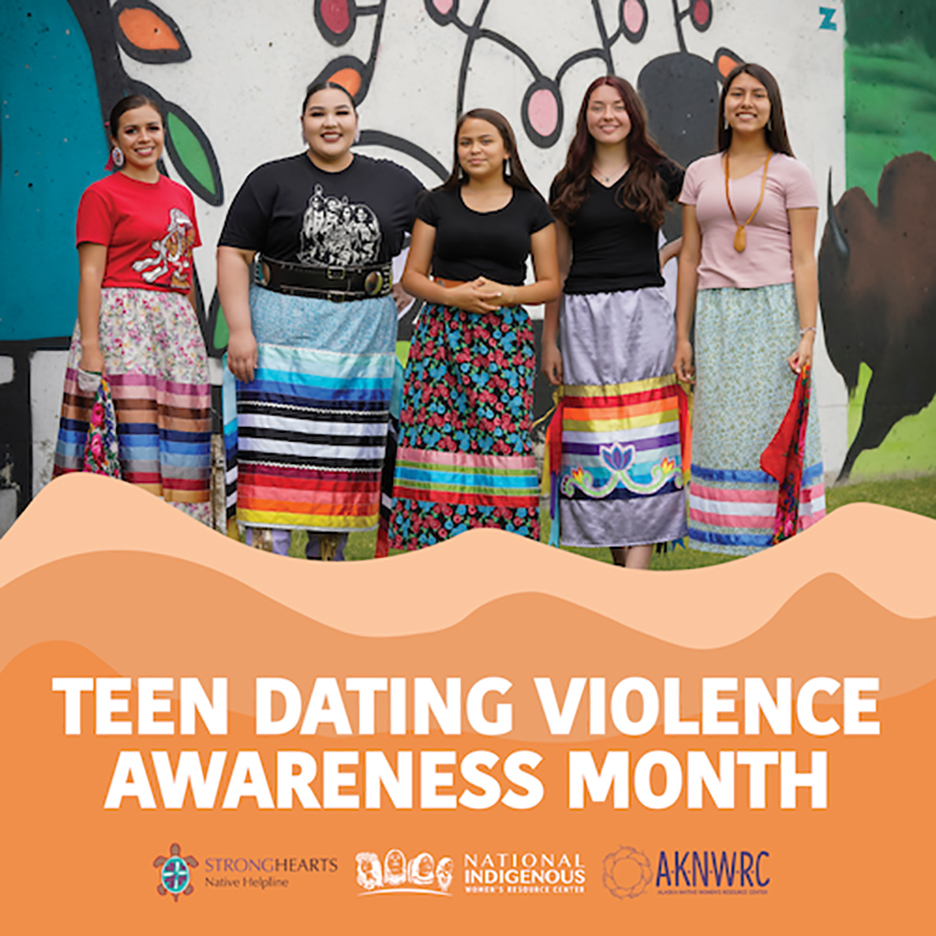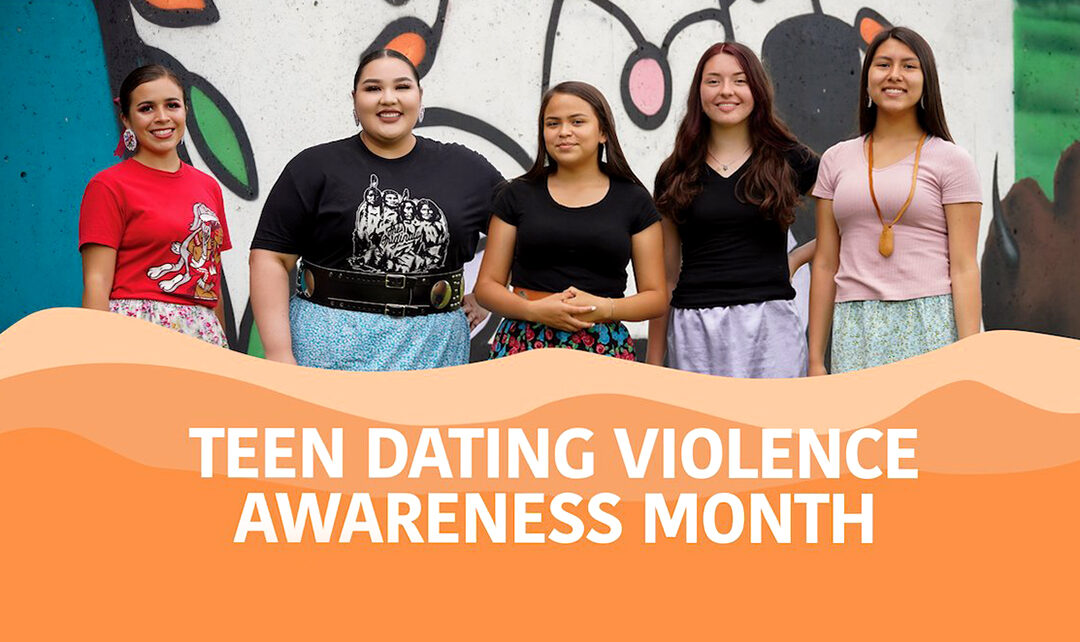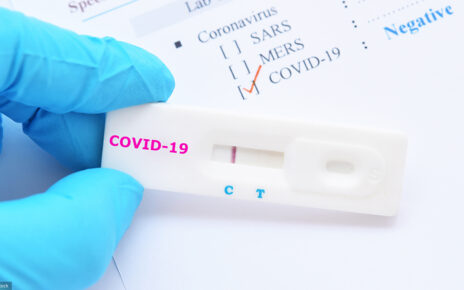Seneca Nation Crime Victim Services will be sharing resources on their page for Teen Dating Violence Awareness Month. Go give them a like to get their updates!
Did you know? 1 in 3 young adults experience physical, sexual, emotional and or digital abuse in their dating relationships.
This month is an important opportunity to create a safe space to listen to and talk with teens about healthy relationships and dating violence. Our young Native adults and teens deserve healthy, respectful relationships. They have the right to information and support when it comes to dating abuse. If you or your youth need to talk, call StrongHearts Native Helpline at 1-844-762-8483 or chat at strongheartshelpline.org.
StrongHearts Native Helpline is a project of the National Indigenous Women’s Resource Center niwrc.org and the National Domestic Violence Hotline.
Below you will find more information about the signs of dating violence, what to do if a young relative is being abused, and resources to help get involved.
Dating Violence, Defined
Dating violence is a type of relationship violence that is defined as when a person uses a pattern of abusive behavior toward their partner to gain power and control over them. Dating violence can include one or more types of abuse, and it can look like when a partner:
- Physical abuse: pushes, shakes, slaps, kicks, or spits on you. Holds you down. Throws or breaks your personal belongings (ex. books, cell phone, etc.)
- Emotional abuse: insults you, calls you hurtful names or embarrasses you in public. Constantly accuses you of cheating. Threatens to hurt you or expose secrets about you.
- Sexual abuse: unwanted kissing or touching, pressures you to have sex or makes you feel guilty for not wanting to have sex, or demands that you send them sexually explicit photos or videos.
- Digital abuse: constantly tracks you online, calls, texts, or DMs you to find out where you are or who you’re with, tells you who you can be friends with on social media, or sends mean messages on social media either directly from them or anonymously.
- Cultural/Spiritual abuse: Criticizes your spiritual or Tribal beliefs.
- Financial abuse: Steals money from you, your family, or your friends.
Some signs of dating violence can include when a partner:
- Acts extremely jealous or possessive of you
- Follows you home or to school, or shows up wherever you are unannounced
- Is annoyed or upset when you spend time on the phone with other people
- Tells you who you can or cannot be friends with
- Starts rumors or threatens to start rumors about you
- Excessively texts you or sends nonstop DMs
- Forces you to give them your passwords to email, social media sites, your phone, etc.
- Distances you from your family or friends
- Wants you to stop participating in activities you enjoy
- Checks your phone for who texts or calls you
- Tags you in hurtful social media memes, posts, or pictures
- Criticizes your dreams, goals, family, or friends
- Tells you what to wear or how to dress
- Explodes in anger toward you or acts aggressively when they’re upset
- Kisses, grabs, or touches your body without your permission
- Forces you to take sexually explicit photos or videos
- Threatens to hurt themselves or commit suicide if you don’t do what they want
If you know a young relative that is being abused:
- Create a safe space and tell them you’re concerned about their safety.
- Be a good relative and listen to their story when they’re ready to share.
- If you or your young relative need to talk, contact StrongHearts Native Helpline 1-844-7NATIVE (762-8483), a 24/7 safe, confidential and anonymous domestic, dating and sexual violence helpline for Native Americans and Alaska Natives, offering culturally-appropriate support and advocacy.
- Center their sense of autonomy and control.
- Honor how they identify themselves.
- Talk about consent. Ask “what does consent mean to you?”
- Ask how you can help them.
- Remember to safety plan around digital issues and technology.
- Offer support and encourage their strength and courage.
- Share resources available online or locally from your community.
- Learn about dating violence and the signs of relationship abuse.
- Avoid confronting the abusive person hurting your loved one. It can escalate the situation and put your young relative in danger.





